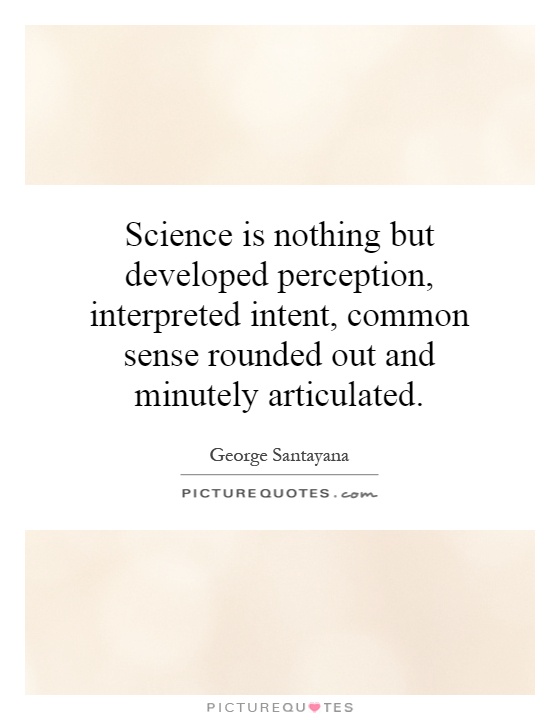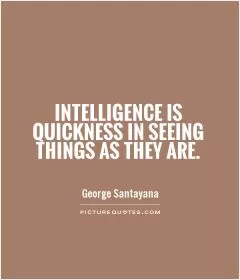Science is nothing but developed perception, interpreted intent, common sense rounded out and minutely articulated

Science is nothing but developed perception, interpreted intent, common sense rounded out and minutely articulated
George Santayana, a renowned philosopher and essayist, once famously said, “Science is nothing but developed perception, interpreted intent, common sense rounded out and minutely articulated.” This statement encapsulates Santayana’s belief in the importance of science as a tool for understanding the world around us. In this context, Santayana is emphasizing the role of perception, intent, and common sense in the scientific process.Perception is a fundamental aspect of science, as it involves the observation and interpretation of the natural world. Scientists use their senses to gather data and information, which forms the basis of their research and experimentation. However, Santayana suggests that perception alone is not enough; it must be developed and refined through the scientific method. This process involves making careful observations, forming hypotheses, conducting experiments, and analyzing results to draw meaningful conclusions.
Interpreted intent refers to the purpose or goal behind scientific inquiry. Scientists are driven by a desire to understand the underlying principles of the universe and to uncover the truth about the natural world. This intent guides their research and shapes the questions they ask. By interpreting their intent, scientists can focus their efforts on answering specific questions and advancing knowledge in their field.
Common sense, according to Santayana, is an essential component of science. It provides a practical and intuitive understanding of the world, which can help scientists make informed decisions and draw logical conclusions. Common sense acts as a foundation for scientific reasoning, allowing researchers to navigate complex problems and make sense of their findings. By rounding out common sense with detailed observations and rigorous analysis, scientists can develop a more comprehensive understanding of the natural world.
Santayana emphasizes the importance of articulating scientific knowledge in a clear and precise manner. By minutely articulating their findings, scientists can communicate their discoveries to others and build upon existing knowledge. This process of articulation allows for collaboration, peer review, and the dissemination of scientific information to a wider audience.












 Friendship Quotes
Friendship Quotes Love Quotes
Love Quotes Life Quotes
Life Quotes Funny Quotes
Funny Quotes Motivational Quotes
Motivational Quotes Inspirational Quotes
Inspirational Quotes